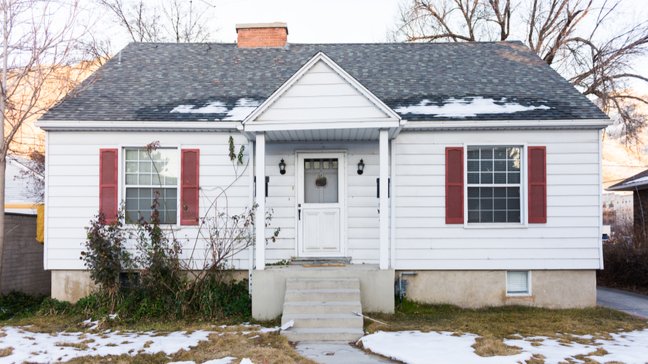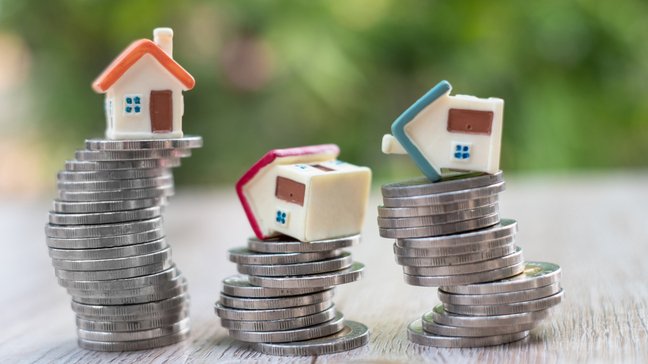In many parts of the country, the real estate market seems to be rebounding. For the first time in a long time, homebuyers may have to be competitive to snag a new house, which will drive real estate prices up.
If you’re a prospective first-time homebuyer, you face the first of many tough decisions: Do you buy a starter home now or save up until you can afford your “forever” home?
Now, everyone will have different ideas of what constitutes a starter home. Indeed, one person’s starter home may be a house another family is happy to own indefinitely.
But in general, a starter home is something you’d be happy living in for around five years even if you know you’ll outgrow it. A forever home, on the other hand, is one that you could potentially see yourself living in for the rest of your life, or at least the next 20 or 30 years. This means it meets most, if not all, the criteria of your dream home: the right location, the right size, and all of the extras.
What it comes down to, of course, is money.
The starter home

The term starter home always conjures up images in my mind of construction debris falling on Tom Hanks in “The Money Pit.” But starter home and “fixer-upper” don’t have to be synonymous. A starter home may simply be a small home or condo that you can afford now – with or without making some improvements.
There are benefits to buying a starter home now rather than waiting for years to buy a forever home. First of all, interest rates are at historic lows. Yes, they may be low next year or the year after that, but then again, they may not be low. A good mortgage rate isn’t everything, but your rate will impact your monthly payment and how much you’ll pay in interest over the life of the loan.
Another consideration is the inventory of houses on the market. Ideally, you want to buy a property that will appreciate (or at least hold its value) so when you sell it a few years down the road you have equity to put into your forever home. We’ve seen that this isn’t always the case though, so you might also consider whether you can turn your starter home into a rental property in the future if it isn’t the right time to sell when you want to move. For starters, check the rents in the area and make sure they would be more than your mortgage payment.
Buying a smaller home that you can’t sell or rent out when you want to move is perhaps the biggest disadvantage of buying a starter home. Doing as much research as possible can help minimize this risk. Other downsides to starter homes include the costs and hassle associated with moving twice and the potential money you’ll spend making improvements to your starter home that you may or may not recoup when you sell.
The forever home
Of course, most of us won’t live in just one or even two homes our entire lives, but a forever home is something that you can see yourself living in for 20 years or more. Perhaps it’s big enough to accommodate a growing family and will be the kind of home that you envision making improvements to not just for resale value but to enjoy yourself over many years.
Here’s the problem: not many 30-somethings – let alone 20-somethings – can afford their forever home right now. As home prices and debt loans have risen, paychecks barely budged. In our grandparents’ day, one income bought a perfectly respectable home. Today, two professional incomes may not be enough to comfortably afford any home in some of the more expensive U.S. real estate markets.
So you may choose to rent something more reasonably priced while you save up for a larger down payment on your forever home. The bigger the down payment, the smaller the loan. If you wait to buy, you also save yourself from the chance that you could be stuck with a smaller home in a bad time to sell, unable to move up.
One disadvantage of waiting for your forever home is that something that’s not affordable now may be even less affordable in the future. Sure, you hope to earn more in the next few years, plus you can save a little bit of money every month, but they aren’t making more land. And if you want to see something frightening, just take a look at the projected population growth in your area.
Though real estate is cyclical and will always have its ups and downs, in the long run, it may be harder to get that dream home of yours if you don’t get your foot in the real estate door, so to speak.
A middle ground

Consider how much of a price difference there is between your starter home and your forever home. If the difference can be saved up in a year, you may want to consider waiting. But if the difference between your $150,000 starter condo and your $500,000 single-family forever home seems like it would take more than five years, you may want to aim for a middle ground.
You may not be able to afford a huge house in the best neighborhood right now, but what about a fairly large house in an area that’s 15 or 20 minutes further from your work? You could look into a townhouse instead of a single-family home, or make a few sacrifices like going for that great home with a smaller yard. Instead of having the all-or-nothing mentality, you may be able to find something that suits your needs for the foreseeable future until you can afford that forever home.
Personally, I’ve chosen the starter home routine. I bought a starter home (which is now a rental property) then three years later bought a “middle ground” home. The home I’m in now will probably suit my family’s needs for around five years. Then I’ll work towards that forever home.
Is a starter home worth it?
After hearing about both types of properties, it is time to decide if a starter home is worth it. As with most things in personal finance, the answer will depend on your unique situation. Let’s explore when a starter home might be worth it for you.
When a starter home is a good idea
If you are just getting your career off the ground, or haven’t decided where you want to spend the next decade of your life, then a starter home could be the right option. You’ll maintain more flexibility with the ability to adapt when a new job or family arrangement changes your plans.
When a starter home isn’t the right move
If you’ve decided to plant deep roots in an area with a stable career and growing family, then a forever home might be the right choice. A forever home can provide the amenities you crave and enough space to enjoy for the next several decades.
Where to get financing

Whether you decide to pursue your dream home or stick with a starter, finding the best lender is the key to success for a first time home buyer.
Luckily, our partner, Mortgage Research Center, allows you to get personalized rate quotes from multiple mortgage lenders after answering just a few simple questions. It can be a great way to begin your mortgage search without any obligation.
Mortgage Research Center is the Internet's leading source for mortgage rates from dozens of lenders.
Answer a few questions to see your personalized mortgage rates in minutes.
- Purchase or refi
- Won't affect your credit
- Options for first-time buyers, VA and FHA loans
- Must provide your email address
Summary
A starter home can be the perfect way to ease into homeownership. You’ll have the ability to build equity and maintain more financial flexibility in case your plans change. But if you are ready to settle down and can come up with a substantial down payment quickly, then looking at forever homes is a good option.
Take some time to consider your options before leaping into the home buying process.



